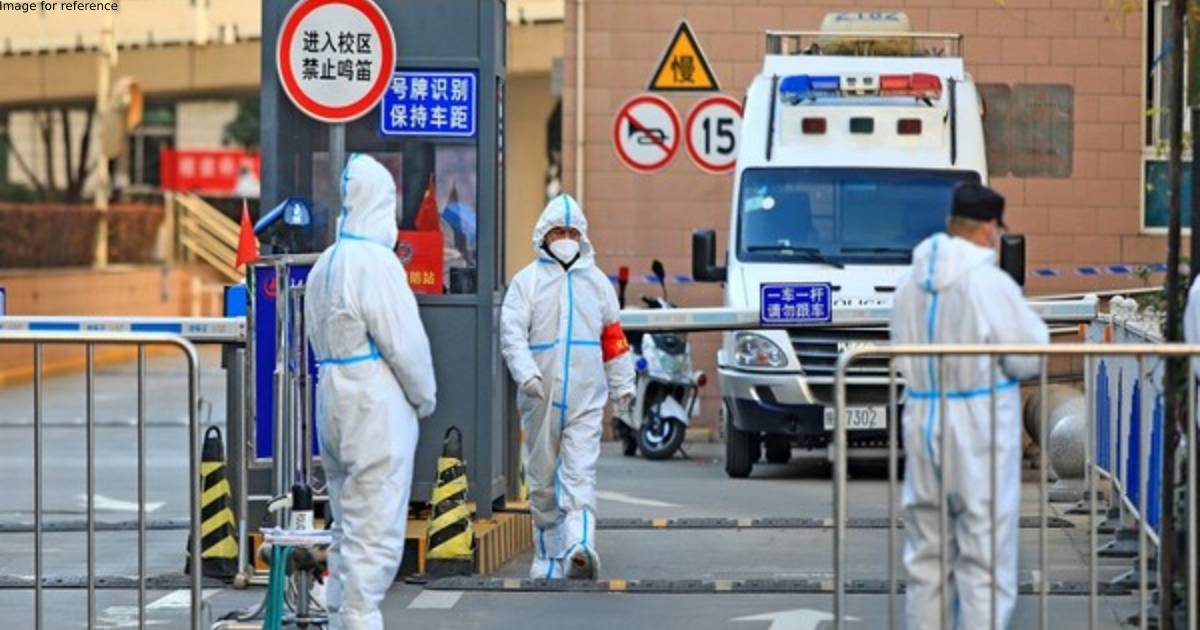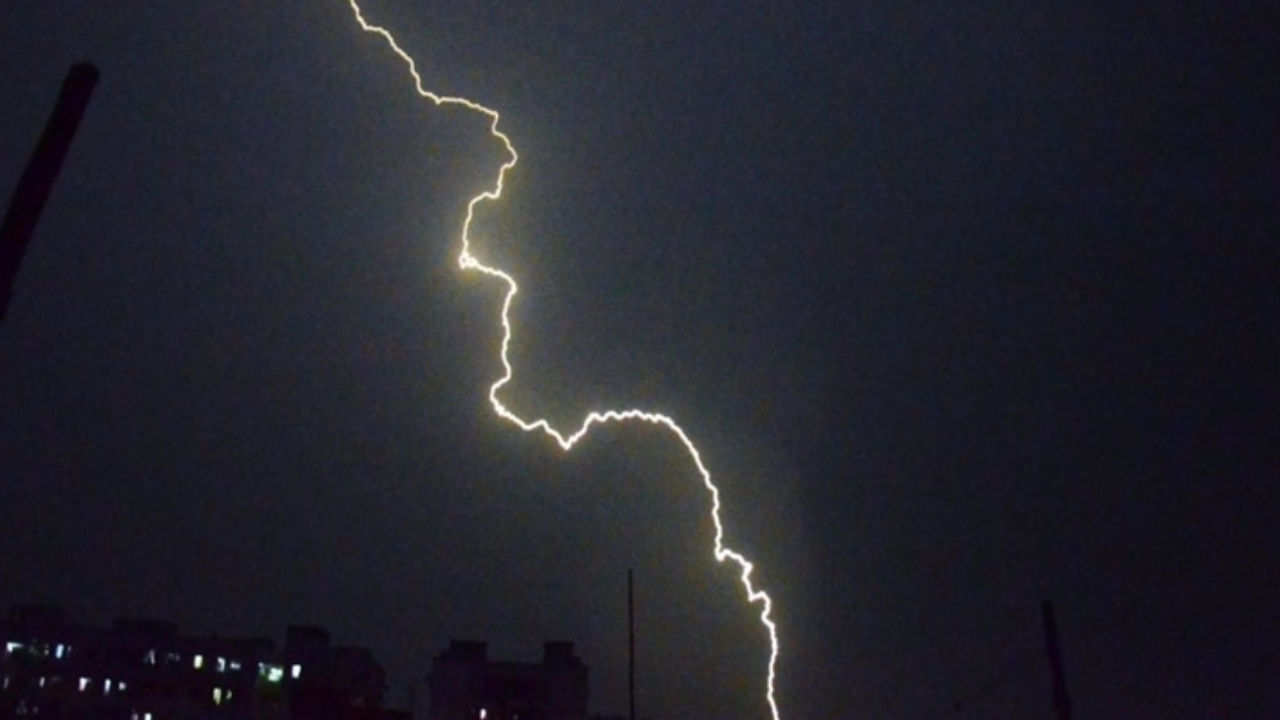Latest News
Covid runs rampant in China, as government washes hands

Hong Kong: On 23 December, China's Ministry of Foreign Affairs tweeted, "China's COVID situation is predictable and under control."
Just four days earlier, the Chinese government reported its first COVID-related deaths -just two of them, mind you - since Beijing released a ten-point easing plan on 7 December. This signaled a turnaround from the nation's controversial and harsh zero-COVID policy. An unverified document, purportedly minutes from a China's National Health Commission (NHC) meeting, appeared widely on Chinese social media before Tencent deleted the original WeChat post. The document claimed there were 37 million new COVID-19 cases in China on 20 December, and a total of 248 million since the beginning of December. That equates to nearly 20% of the population. Yet, on 23 December, China reported to the World Health Organization just 28,493 new cases in the preceding 24 hours. Considering that the same day Hong Kong reported 20,252 cases and 42 deaths (Hong Kong's population equates to just 0.5% of China's),
Beijing's official figures are just not credible.
In fact, China's COVID figures are absurd in the extreme. Of course, one way around that is for China to fiddle its statistics. Thus, on 20 December, it announced it was rejigging and narrowing how deaths would be counted. Those who die from COVID but have other underlying conditions (e.g. cardiovascular disease or heart attack) would not be listed.
An even better solution to avoid the true scale of the tragedy would be for China to stop publishing figures whatsoever, something it did on 25 December when the NHC stopped supplying daily updates. Even if it had not done so, one can be certain that China would have kept its casualty figures below those of nemesis the USA.
One Chinese source informed ANI that ten million new infections are probably occurring daily in China. Such estimates are backed up by rare admissions. For example, Bo Tao, head of Qingdao's health commission, said on 23 December that about 490,000-530,000 people were being infected daily in his city.
Amidst this massive outbreak, which eclipses anything in the West, many Chinese netizens went online to vent their frustration. One bemoaned: "What we are experiencing is the largest outbreak of the epidemic in the world since the emergence of the coronavirus. Work and life, and many people, will leave forever because of this ... This is not a meme, please stop...underestimating the virus and fooling the public."
Those too robust in pointing accusatory fingers at the government had posts deleted, but the fear and frustration cannot be swept away with such ease. With the government abdicating its responsibility to give honest information, there is plenty of anecdotal evidence of the severity of the outbreak.
In hospitals there are no spare beds as patients overflow into corridors and floors. There is not enough oxygen either, emergency phone hotlines are jammed, and ambulances queue up to offload sick patients at hospitals with no space. Simultaneously, hospital staffs are depleted with their own infections.
Tragically, patients in body bags are accumulating as deaths spiral and overwhelm morgues. For example, Beijing's largest Babaoshan funeral house has a 20-day backlog, despite its incinerators working around the clock. Hearses have been seen queuing up outside crematoriums (of which Beijing has around twelve), and families cannot find funeral homes with storage facilities for bodies. As one employee at Beijing's Dongfang Hospital said on social media: "Due to a number of positive tests among funeral home employees over the past couple of days, there is now a serious staff shortage. And due to the recent increase in death rates in Beijing, cremations are now being scheduled for 5-7 days' time. There is a serious issue with the backlog of human remains."
Shanghai Deji Hospital warned staff, via a post on its WeChat account that was later deleted, that it expected half the city to be infected within a couple of weeks. "In this tragic battle, the entire greater Shanghai will fall, and we will infect all the staff of the hospital! We will infect the whole family! Our patients will all be infected! We have no choice, and we cannot escape."
As for the living, medications such as paracetamol and anti-inflammatories have sold out all around China. State media like CCTV show images of well-stocked and peaceful pharmacies, whereas the reality is empty shelves after customers panic-bought fever medicines. The government is asking pharmaceutical firms to ramp up m production, after earlier discouraging people from buying over-the-counter medicines.
It is now a free-for-all, as people begin to realize that the government cannot help them and they must fend for themselves. Surely the faith of many in the party is being shaken to the core. Nor are there enough food home delivery drivers, while businesses suffer debilitating
disruptions as workforces are struck down by COVID-19.
Nicholas Burns, the US Ambassador to China, tweeted, "All of us in US Mission China express deep sympathies for those affected in China due to the spread of COVID-19. Our embassy + consulate teams have also been affected. We support those suffering from the virus and those who have lost loved ones."
Xiaofeng Liang, Deputy Director of China's Center for Disease Control, predicted that more than 60% of Chinese would become infected over the coming 90 days. Elsewhere, British health data firm Airfinity estimated China's infections to be one million per day, and deaths at 5,000. Predictions regarding China's burgeoning death toll range from 680,000 to 2.1 million. Unfortunately, it is spreading faster in China than elsewhere, with an estimated extremely high 'R' number of 16, meaning each case infects 16 others on average.
The R value is so high primarily because the 1.4 billion-strong populace has little natural immunity, since it has been sheltered for the past three years. Furthermore, only 42.3% of China's elderly aged 80+ have received a third jab of a vaccine. The Chinese Communist Party (CCP) should take the majority of the blame for this as, originally, the NHC recommended only vaccinating people aged 18-59. This was opposite to standard policy in other countries, where the elderly were considered the most vulnerable.
Nor is China's healthcare system ready. The country has 3.6 intensive care unit (ICU) beds per 100,000 people, just a tenth of what the USA possesses. Without a doubt, COVID-19 will be the biggest test for China's healthcare system. What is criminal is the CCP's lack of preparation. It had three years to prepare for an inevitable surge in infections, by expanding ICU capacity or rolling out more effective vaccines. Instead, it invested all its efforts into mass testing, locking up the population and sending people to makeshift quarantine camps. Just as it lied and obfuscated about the origins of COVID-19 as it spread around Wuhan and then across the globe, so now the CCP refuses to acknowledge the magnitude of the virus' spread.
But why did the coronavirus pick this time to explode?
There is a reason, and that is mismanagement. Indeed, the blame can be laid squarely at the feet of the government and CCP. It is now more than two months since the 20th National Congress concluded in Beijing, and the party is currently in limbo, a kind of "lame-duck" period. A number of party leaders will step down in early 2023, either for age or political reasons after being squeezed out by Chairman Xi Jinping. Meanwhile, others are waiting in the wings to take
up new posts.
This interim period of waiting means that outgoing leaders are winding down and reluctant to make decisions. This lack of impetus has been sorely exacerbated by the CCP's return to "one-man" tyrannical rule, where all authority resides solely in Xi. Nobody wants to take risks by pursuing policies too hard or making unpopular decisions. Furthermore, there is far less coordination and collaboration between different ministries and agencies. Now, with the abolition of collective governance, only one person - Xi -can make decisions with far-reaching consequences. Yet he is unlikely to have sufficiently consulted with all parts of the government, nor have all relevant data available to him.
Indeed, various ministries and government departments, and certainly the private sector, were stunned by the dramatic U-turn in COVID policy. They were caught totally unawares. Recently, Xi warned that China "has a large number of vulnerable groups, unbalanced regional development and insufficient medical resources," and this was his reason for imposing lockdowns on China's populace. Officials passionately obeyed Xi's directives, but none could have foreseen his abrupt about-face. Although spontaneous protests broke out around China in late November, these should not be misconstrued as the reason for a relaxation in rules. There were already indications of a loosening, including the State Council issuing a 20-point zero-COVID policy liberalization package on 11 November. Xi realized that the economy was being hammered by the strict zero-COVID policy, so more relaxed plans were already afoot.
A short time ago, Xi's protege Chen Min'er told the city of Chongqing on 27 November, "Be resolute in fighting and winning this war of annihilation against the pandemic." Elsewhere, Xinhua called Xi's Draconian policies a "magic weapon for victory", while the People's Daily affirmed that Xi's policy was "totally correct". Defending the harsh zero-COVID policies, a China Daily op-ed in May argued, "How many people were hoodwinked into believing Omicron was the perfect pandemic off-ramp and thus threw caution to the winds? And how many chastised China for pursuing an aggressive containment strategy...?"
Yet, within a fortnight, the whole narrative was reversed and China did throw caution to the wind. The narrative was that the West was chaotic, while China is farsighted, well organized and orderly. Yet the state propaganda machine is struggling to sell its new storyline. Additionally, what is notable is the invisibility of Chairman Xi. While state-controlled media trumpets that everything is normal, under control and happy, the leader is absent, distancing himself from the tragic goings-on that beset the people.
Xi staked his reputation on his strategy, but lesser officials will be left carrying the can as he evades responsibility. China is arguing that its measures have bought time and that new measures will be a boon to economic recovery. Sunny state media reports depict a temporary inconvenience being mitigated by good governance, and that the worst will soon be over. The China Daily reported, for instance, "The overall epidemic situation is controllable and a return to full normalcy can be expected by spring." Its campaign is long on propaganda and short on useful information. The reality is that Beijing and Xi squandered the past three years. China showed no interest in promoting vaccination drives, stockpiling drugs or expanding ICU facilities.
Chinese officials and media used to cackle at the rest of the world as they endured mass infections and deaths. It berated the Western world for allowing such a poor state of affairs, whilst applauding its own approach. "One million COVID infections shows the US is no superpower," one netizen lamented. Yet, with the shoe on the other foot, how many millions are now being infected in China? Or what about former Global Times editor Hu Xijin? He previously argued, "All countries must treat the coronavirus seriously and make decisions based on scientific analysis instead of political interests. Giving up the COVID-19 fight and letting it spread freely would be a betrayal to all mankind."
Then, on 16 December, Hu admitted he had caught the virus, but "I'm confident that China will embrace a new life at a very small cost". One wonders if he felt at all betrayed by the CCP's radical flip-flop that had nothing to do with science. In the same way, China's puppet Hong Kong slapped scientific evidence in the face when it announced it would open up its border freely to China from mid-January. With COVID-19 rampant in China, why would the Hong Kong government do so at this juncture, except out of political servitude?
Outspoken neurobiologist Rao Yi, President of the Capital Medical University in Beijing, said on WeChat: "There's one camp that believes they can convince officials to persist with [current policies] and defeat the virus. Another camp keeps saying that the pandemic will soon be over and everything will be fine. But no one will admit that [we] haven't yet figured out the pattern of this pandemic, so we are practically crossing the river by feeling the stones." COVID-19 has veered dramatically off-script, yet Xi remains silent. He is above it all, distant.
For months, the USA has been offering Western vaccines to China. Yet it seems impossible that Xi could alter course on his vaccine nationalism, unless of course the lives of the people he purports to serve take precedence over his own hubris.
This outbreak is a CCP-made crisis, but like Tiananmen Square and the Cultural Revolution, the world will never really know how many died in China during this latest crisis. (ANI)

.jpg)
.jpg)
.jpg)
.jpg)

.jpg)
.png)
.png)
.png)

.png)

.jpg)
.jpg)
.jpg)
.jpg)
.jpg)
.jpg)
.jpg)
.jpg)
